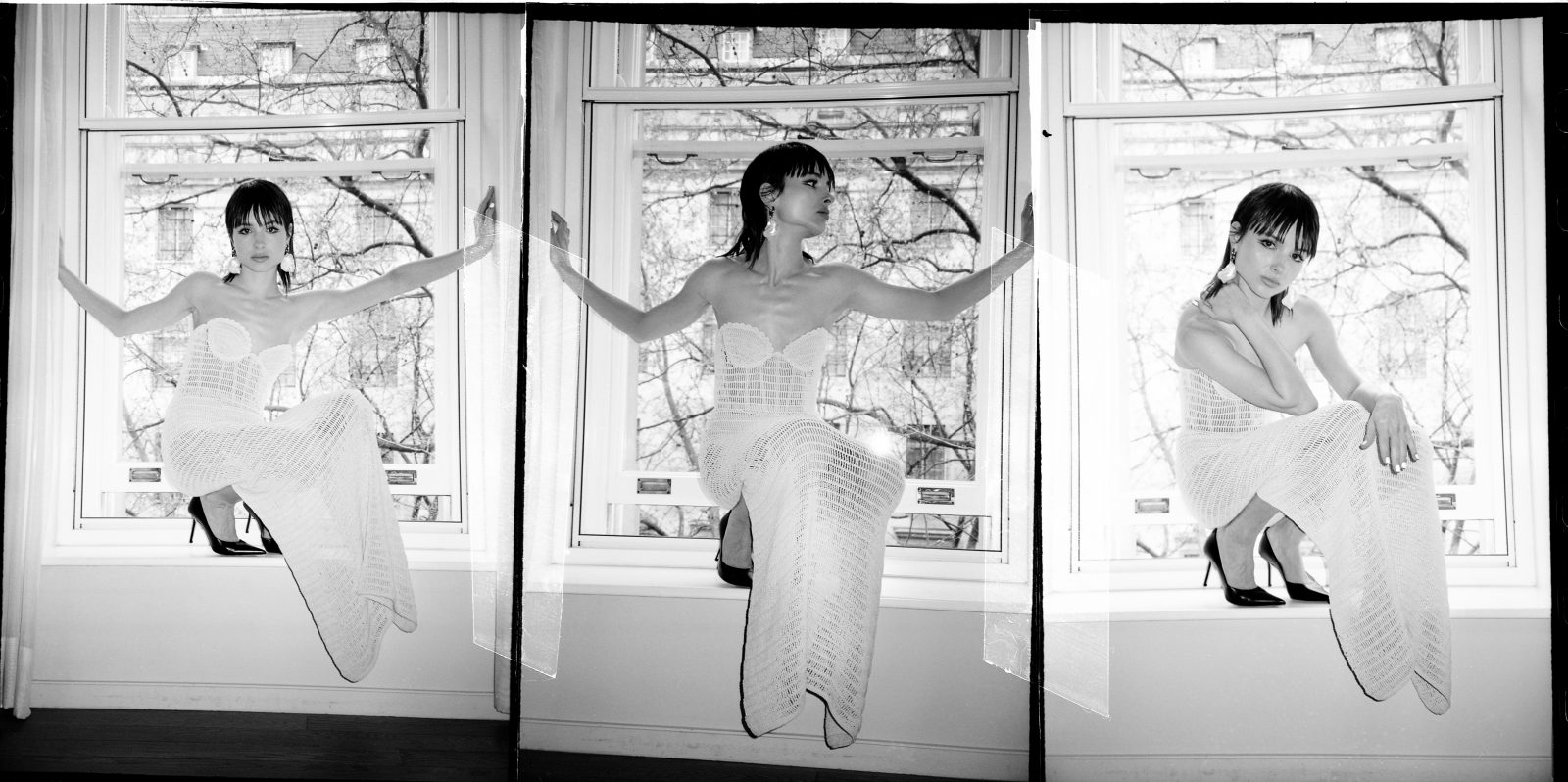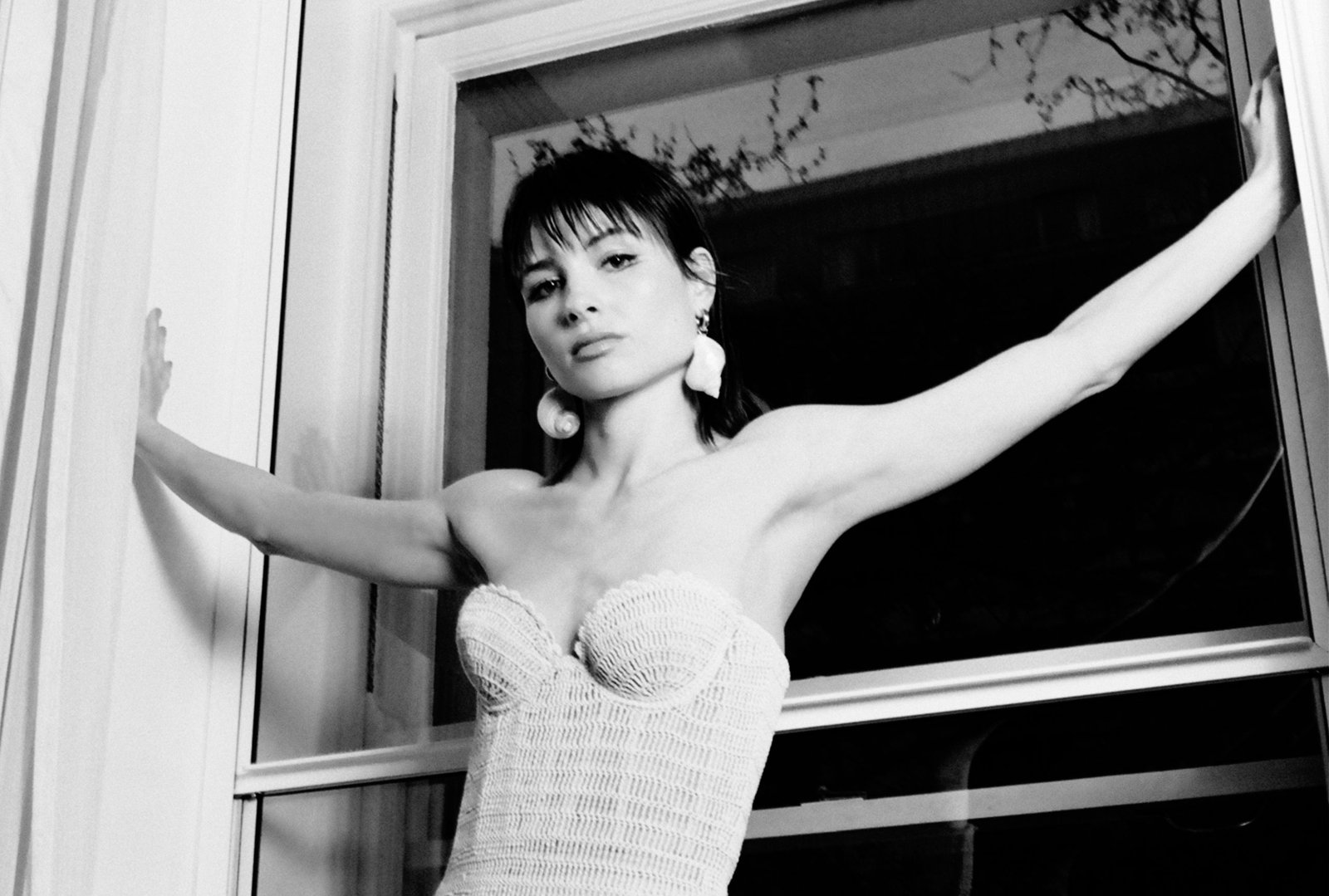Text: Jeremy Whitaker
“This is a very moving and emotional and visceral piece of art,” says Polish actress Anna Próchniak, leading woman of the new Peacock limited seriesThe Tattooist of Auschwitz.In the series, Anna portrays the real-life Gita Furman, a Slovakian woman who is a prisoner of the Auschwitz-Birkenau concentration camp.
Born in Poland and raised as a dancer, instinct told Anna this role belonged to her well before she auditioned. There is a sort of quiet pensiveness that comes over her as we discuss her approach to acting and her portrayal of Gita. Her reverence for the woman whose memory she gives life to is likely informed by her very intuitive approach to her craft.
The Tattooist of Auschwitzis a television show that does not hide the harsh reality of the conditions of concentration camps. To do so would be an injustice to the innumerable victims of the barbarism of the Nazis. Instead of sensationalizing violence, the limited series demonstrates a story of humanity’s perseverance through the face of horror. The series reaffirms the importance of bearing witness to the atrocities of the past by doing so unflinchingly.
When our conversation began, the first thing we discussed was the exhaustive nature of the press junket. “I think your work should speak for itself,” she said, and I agree with her. When it comes toThe Tattooist of Auschwitz, a true story of the Holocaust with a century of context to frame and define it, there isn’t much that needs to be explained. Within the first few moments of the series, it becomes clear why stories like this are still being told, and why they are undoubtedly relevant today.
In delving into Anna's journey and the demanding process of filming, she underscored the crucial significance of amplifying the narratives of silenced voices. She passionately advocates for the enduring relevance of discussing love and honoring the humanity of those victimized by hate. For her, the process is ongoing. “It's an honor that we can tell this story, but we have to be aware of the fact that there is so much more that we can tell.”
Read the full interview below:
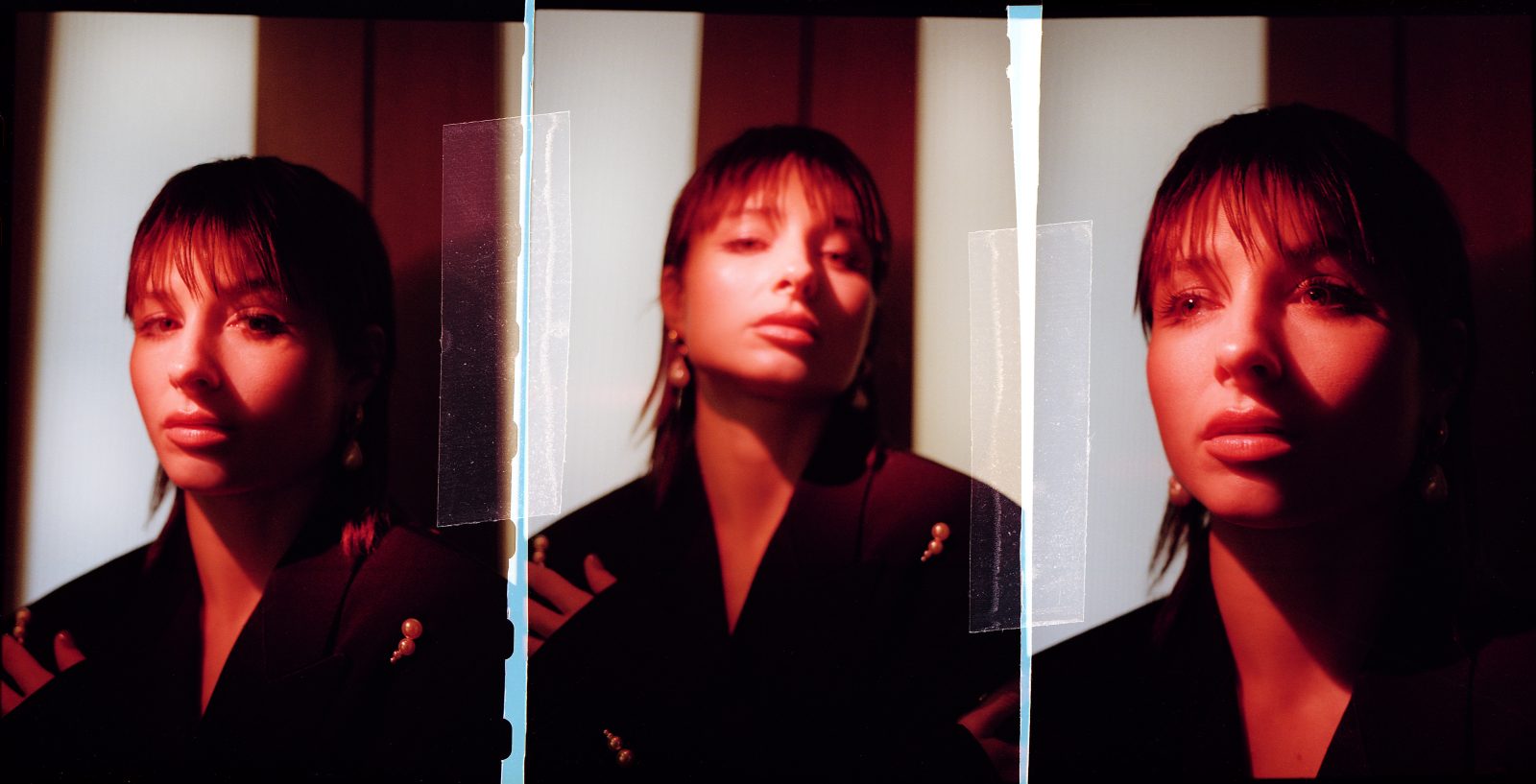
JW: Tell me about your journey into acting.
AP:It all started with dance. I had attended ballet classes since I was eight, for ten years. Dancing has always felt the most organic to me, and it was the easiest way to express myself. My mom says that I started dancing before I started walking, so it was quite a natural next step to train in dancing. I really loved it, and I loved the structure of ballet, of classical dance. Then I discovered contemporary dance, improvisation, and jazz, all sorts of body languages, and I just loved it. Then I went to drama school, I chose the physical theater and contemporary dance department, but after some time learned that acting was something that really inspired me. I think acting is an extension of dancing. I think it's a great base for an actor to be self-aware of your body and to start from your body. I think my approach towards acting has always been very organic and intuition driven and instinct driven.
JW:Do you think that there's a sort of choreography to acting?
AP:I don't think it's a choreography, but I think that we can understand our emotions through our bodies much more than through our analytical minds. I think it's easier to access some emotions through your body. So it's more about the presence and about the movement and about what the movement does to you than about the choreography.
JW:So it's more reactionary than choreography
AP:I think it is. It's action, reaction.
JW: Do you consider yourself an introvert?
AP:I am totally an introvert. So your next question should be why I decided to be an actress,
JW:Right?
AP:It requires some levels of extrovert, but I am an introvert, and I think I have always been looking for a way to express myself and to connect to the world and to other people. I just think I was looking for the right language. It was first dancing and then acting. I was just looking for my voice, acting helped me find my voice.
I think I am shy, and being shy by nature, I learned that acting can be protective in some ways. It gives me some kind of shield to hide behind.
JW: Tell me how the role of Gita inThe Tattooist of Auschwitzcame about for you.
AP:I mean, it all started with this story. I read the book by Heather Morris when it was first released, five years ago. I completely understood the phenomenon of this book. I think it felt like this story was just meant for the screen. It was only a matter of time until it would happen. When I was offered the role, it felt unreal, but at the same time, I had a gut feeling about it.
JW:Really?
AP:I was asked to record three different self-tapes for this, for three different characters. So I started with a self-tape for Bella, then for Nadia, and then for Gita. But I mean, I wasn't stressed out at all. It's really hard to explain.
JW:It seems like you're very zen in general. However, I think there's something to be said about your instincts. So much that happens in my life feels like something I already knew.
AP:That's what I thought. I knew something was coming but I just had to wait for the time when I would be ready for it.
JW:And?
AP:It just felt right, everything about it. Right time, right place, right project, right story, right character. I couldn't wait to tell her story. I couldn't wait to meet Gita. It was an out-of-body experience. I really believe that the casting process is a tricky one, and there is not a lot of logic to it. I believe that it's the character, it's the role that decides who is the right person at the end of the day.
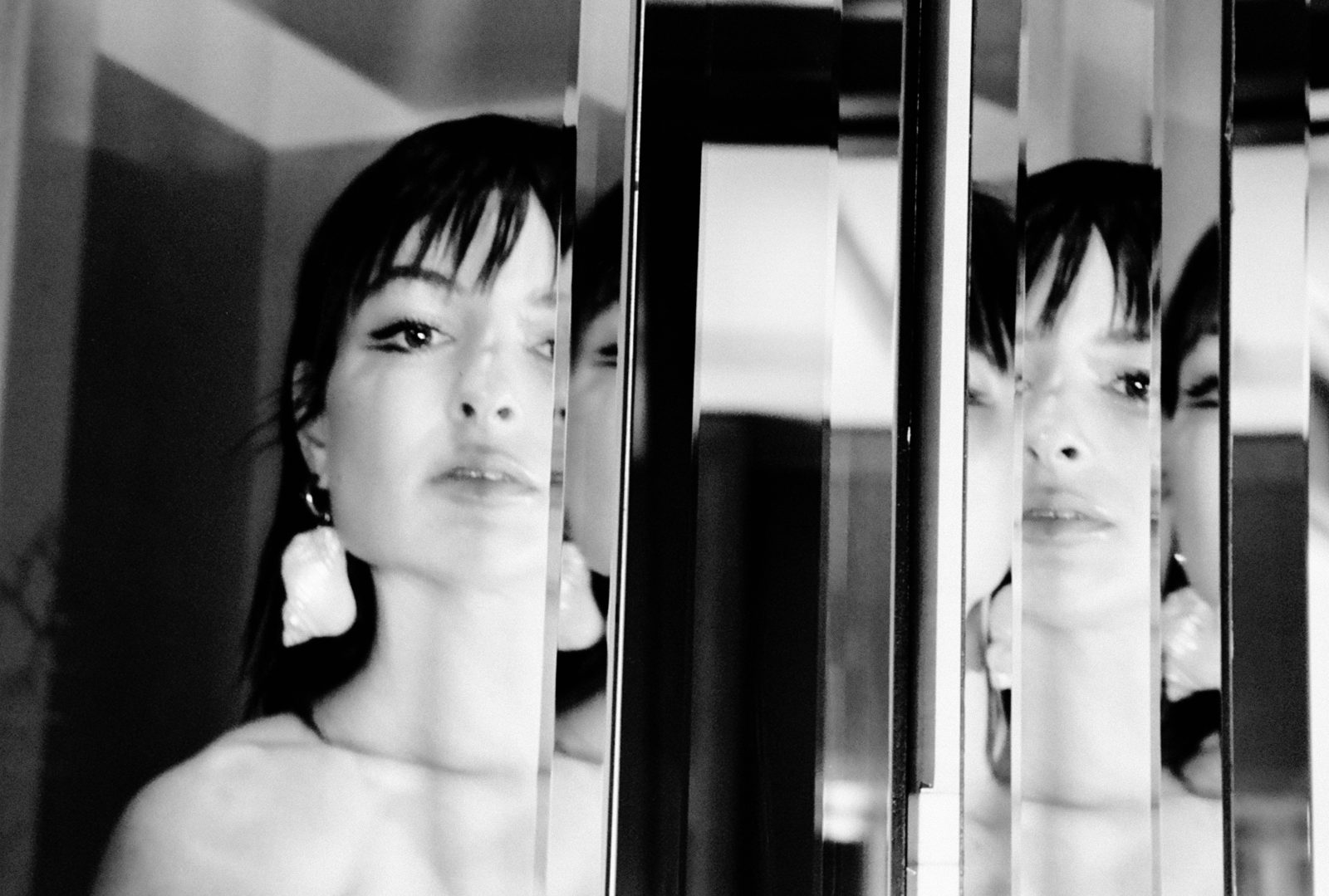
JW: Who is Gita? I would think you know her best.
AP:She is a young Slovakian woman who is a prisoner of Auschwitz. What I love about her and what Lale loved about her is how multidimensional she is, how complex she is. She's very strong and brave, but at the same time, so fragile and vulnerable, and she's ready to help other people. She has these levels of compassion and resilience. And she's a true inspiration. She's a beautiful human being.
JW:There seems to be a palpable humanity in this character. This is a real story, and she was a real person. She's not a victim by any means, but she's not unfeeling either. As someone who's Polish, I'm sure this was very personal to you.
AP:Yeah, of course. I've been to Auschwitz when I was a teenager. To another camp when I was even younger. We have to remember it. I think it's very important to keep telling these stories to the world. There are so many personal stories, and this is just one of them. It's a huge honor to be able to tell this story. It felt very special.
JW:Did it feel nerve-wracking portraying this story knowing that it is based on the true events? Knowing how many millions were affected by the Holocaust?
AP:Of course. This is such an important story to tell, and I think this is our responsibility to draw our attention of Holocaust to the survivors and to respect their personal stories, because it's an honor that we can tell this particular story, but we have to be aware of the fact that there are so many stories that we cannot tell.
JW:I'm so curious about the energy on set.
AP:We shot all the show in Slovakia, and there was a set design created outside of Bratislava. It was very challenging going back into these camps every day, back into the mindset. It took its toll on everyone, all the cast and crew. But at the same time, we didn't want to be self-indulgent about it. It would be naive to think that it wouldn't have affected us, but at the same time, it wasn't even a patch on what it would have been for the real people. So I mean, it was challenging, but we all felt that we had a meaningful story to tell to the world. We had each other's backs. I felt supported and connected to all the people, and it was great teamwork.
JW:With the set being so grim, and obviously a wildly important subject matter, I wondered how you kept yourself afloat mentally. That's amazing to hear that there was a community within the cast and the crew.
AP:There was a sense of community, and we worked in a controlled environment. Our director Tali [Shalom Ezer] created this safe space for us so we were able to explore all the darkness we needed to access to tell this story. Also, production provided some onset therapy sessions for cast and crew who would need it. Just knowing that there is an opportunity to speak to someone, it was very good.
JW: Have you seen the show?
AP:I have.
JW:What was it like watching that back? I noticed that it was scored by Hans Zimmer, which is a game-changer.
AP:The score is amazing. It's Hans Zimmer and Kara Talve, and she's also amazing. With Barbara Streisand singing the end credit song for the last episode. I haven't heard it yet.
JW:That is crazy.
AP:This is a very moving and emotional and visceral piece of art. It's not an easy watch, but not everything has to be easy, right? This is a real love story, and it makes it even more heartbreaking because you can connect to the characters because of what they found in this hell on earth. It's beautiful love and it breaks your heart.
JW:It proves that love can exist in the face of unspeakable terror and horror.
AP:I think this is our decision, and Gita and Lale's love story is their decision to remain human in this darkest of places. This factory of death and dehumanization. This is so brave of them to choose love and to give love, to receive love, and to radiate love. It's easy to arouse hatred. Love requires effort, sacrifice, and commitment.
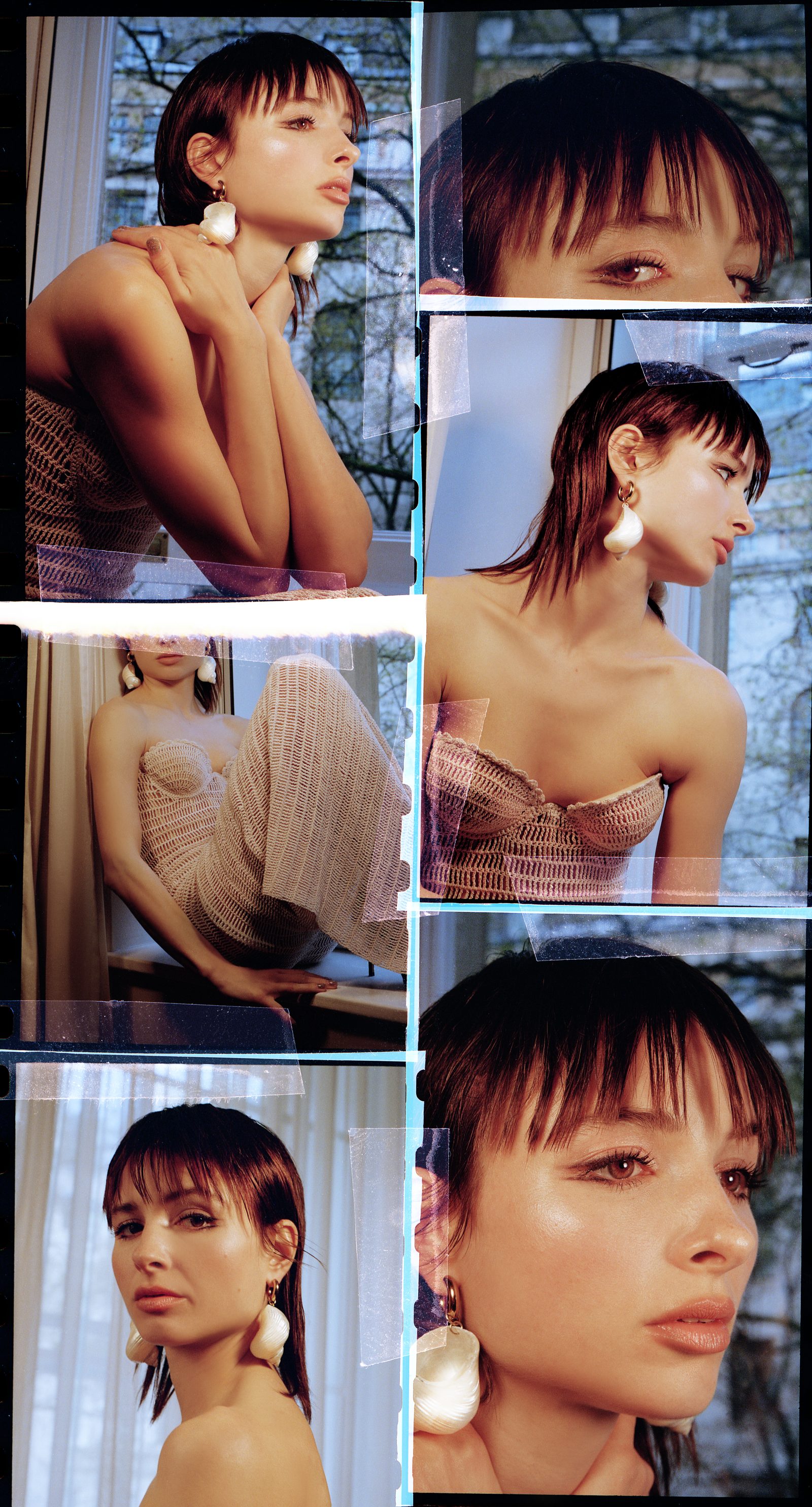
JW: With your character Gita and Lale, played by Jonah Hauer-King, being at the center of this story, were you quite bound together?
AP:Yeah, we've been through a lot. Jonah is such an amazing actor. He's extremely talented, and he's been very supportive and always prepared, always kind, always humble. In those kinds of projects, you have to be ready to explore darkness, to access very difficult emotions, and to stay in the mindset to be vulnerable in front of other people. He was brave enough to do it every day, and I'm very grateful that I had this opportunity to share this with him, to share this journey. I think I couldn't have done it without him. I believe that we created something special.
JW: We've covered themes of hope, love, and humanity, but what do you hope the viewers take away from watching the show?
AP:The ultimate message of the show is that love is the greatest power that we as humans have access to. We can always choose love over hate. We can learn from Gita and her compassion and resilience. It is a great lesson of humanity. I think their story gives a glimmer of hope in the current world and is something that we really needed.
